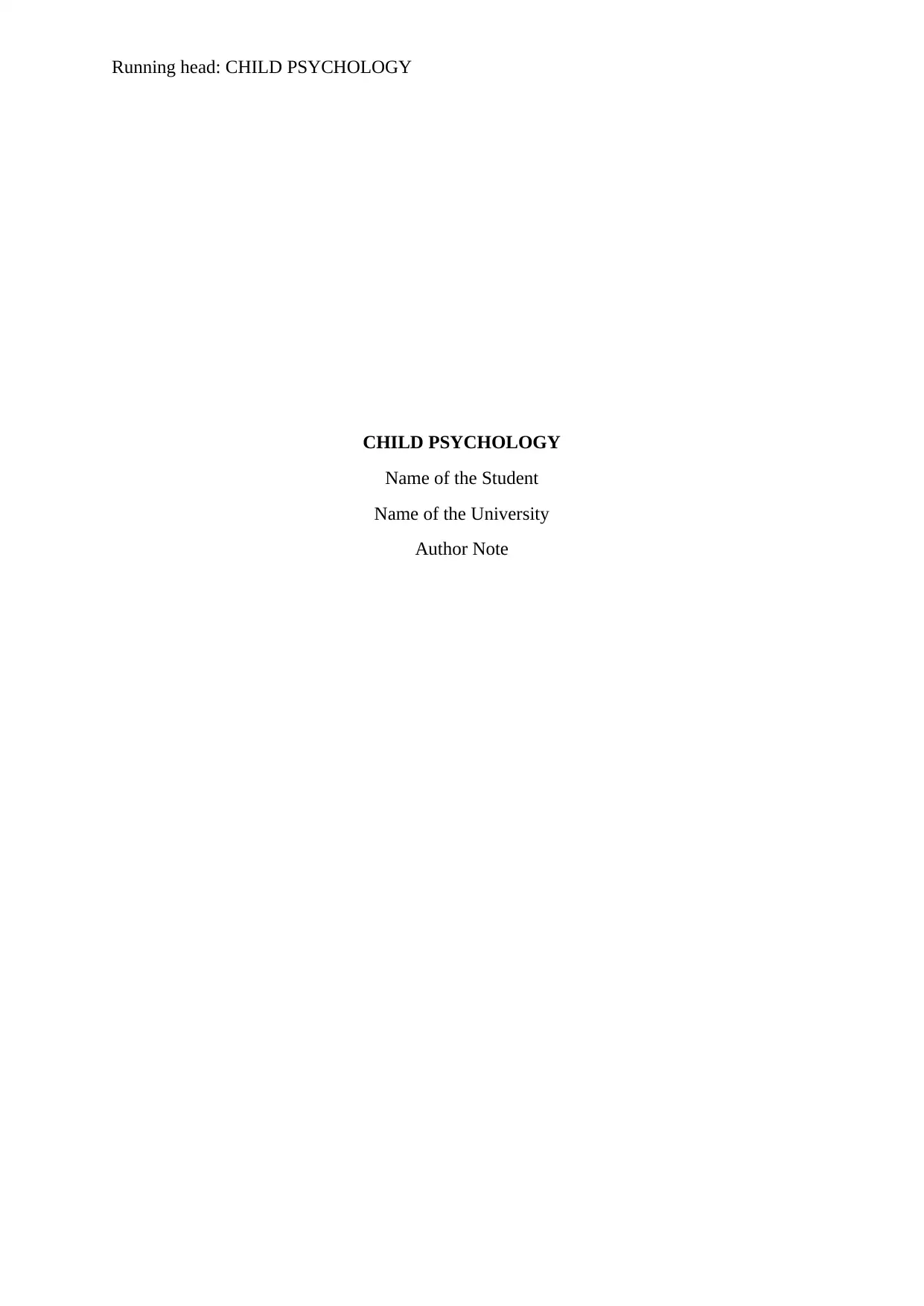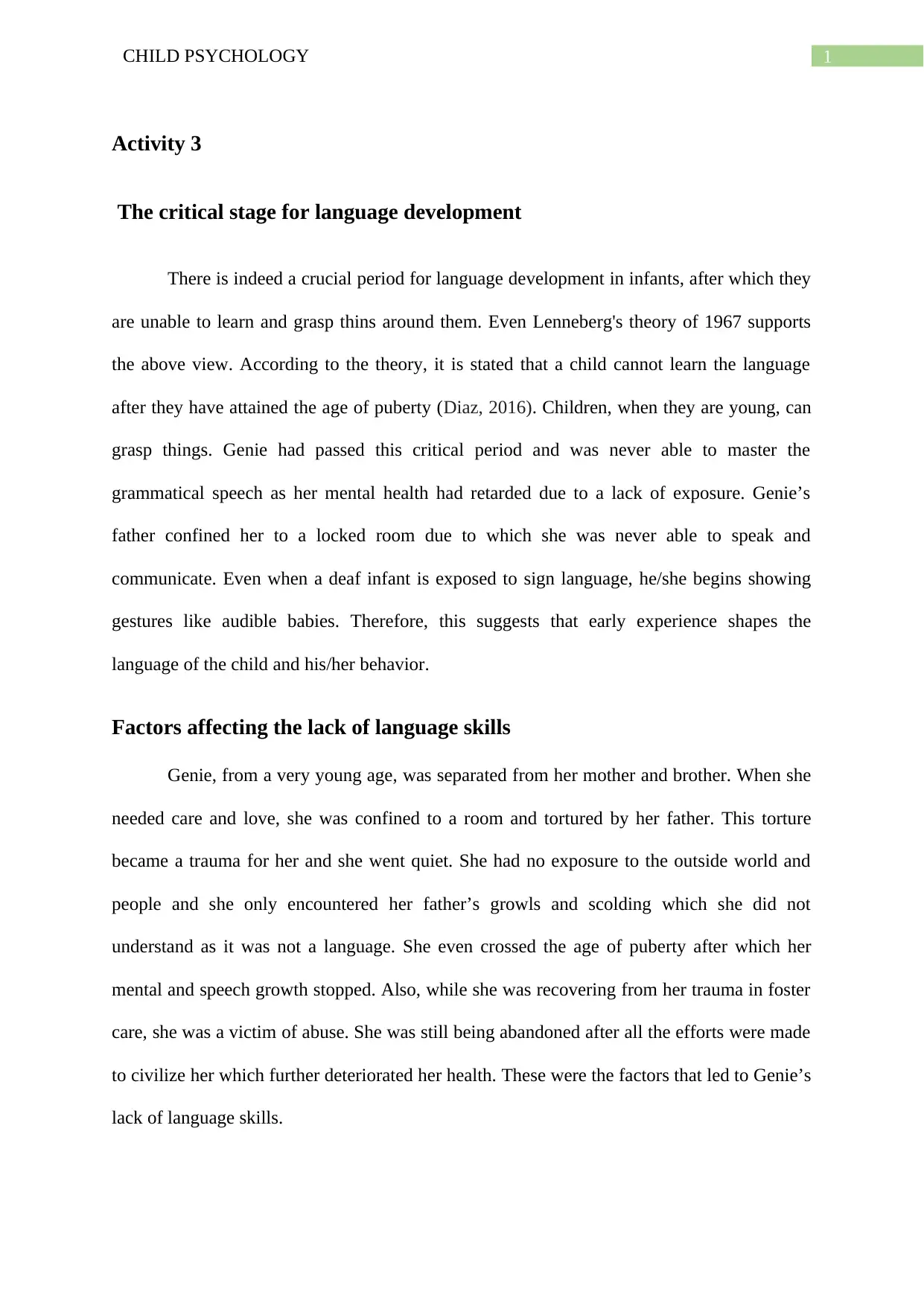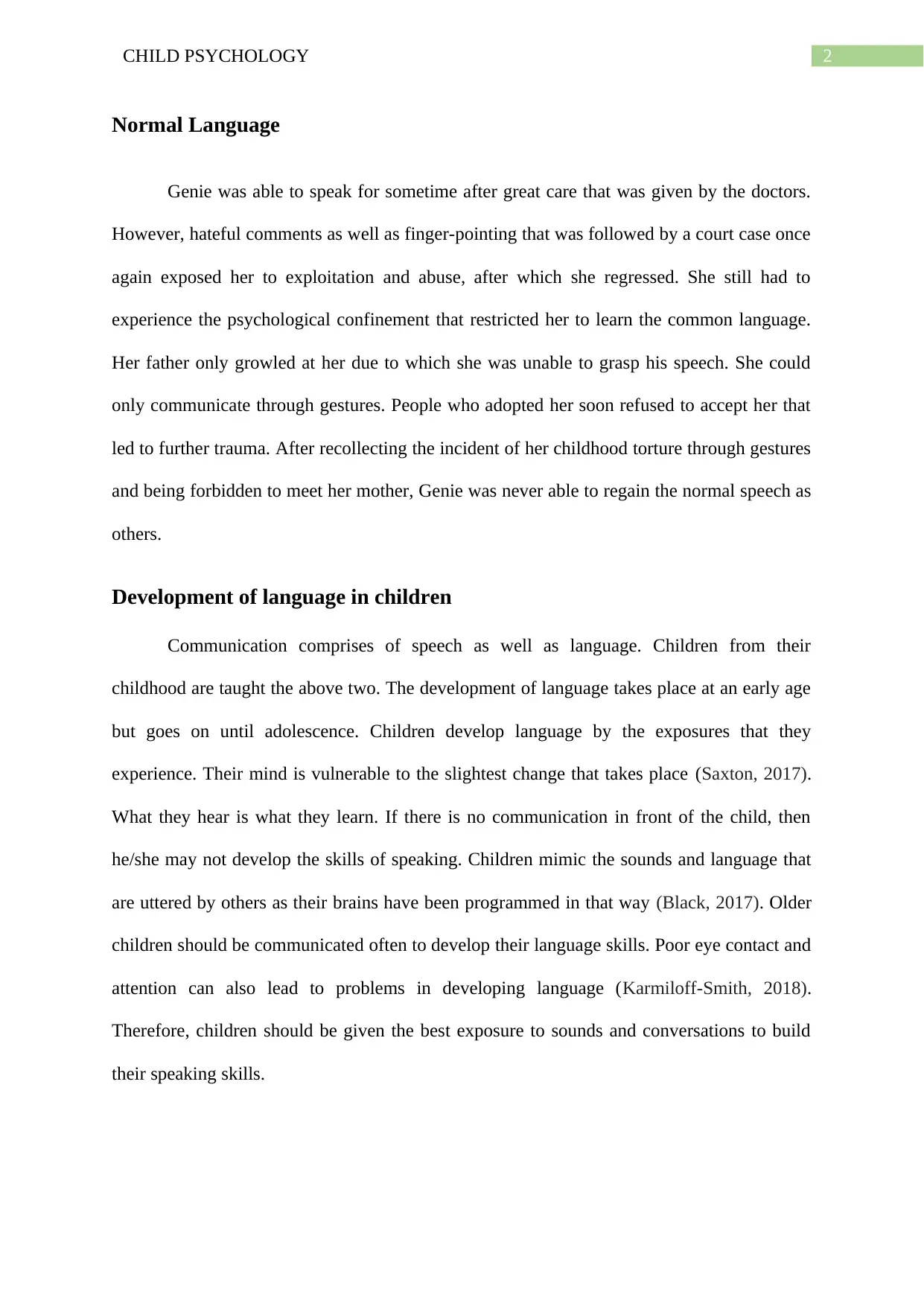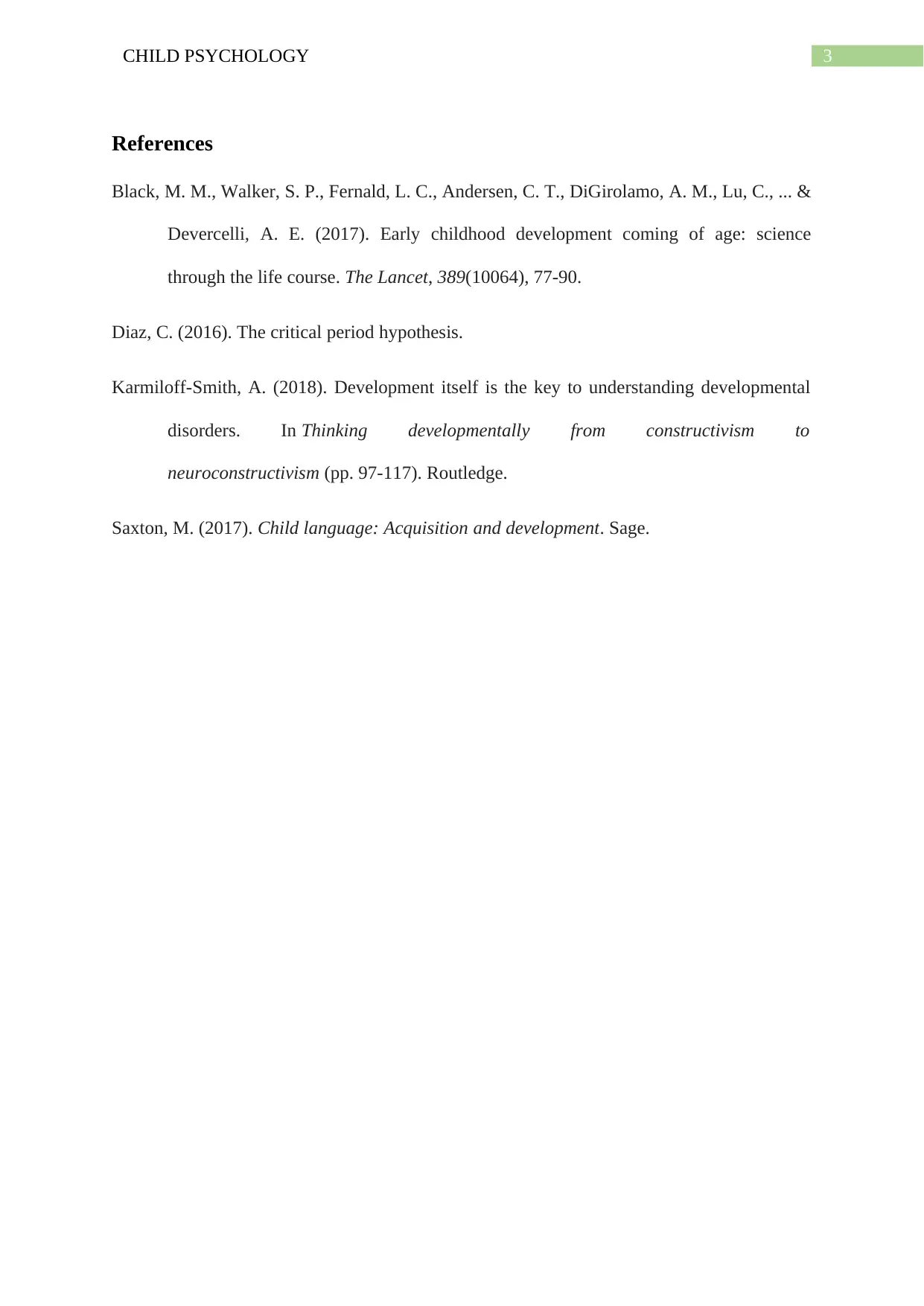Child Psychology: Critical Period of Language Development Analysis
VerifiedAdded on 2022/08/20
|4
|782
|12
Homework Assignment
AI Summary
This assignment examines the critical period for language development in children, drawing on Lenneberg's theory and Genie's case study. The student analyzes whether a critical period exists, supported by the provided article, and explores factors that contributed to Genie's lack of language skills, including early trauma, isolation, and abuse. The assignment also discusses Genie's limited ability to develop normal language and the impact of her environment on language acquisition. Furthermore, it explores the general process of language development in children, emphasizing the role of exposure, mimicking, and the importance of communication and interaction for building speaking skills. The student references relevant research to support their analysis, including the works of Diaz, Saxton, Black, Karmiloff-Smith, and others.
1 out of 4











![[object Object]](/_next/static/media/star-bottom.7253800d.svg)